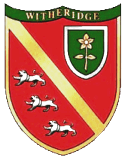

|
In November 1640, Charles 1st summoned Parliament to help him out of a financial crisis. Charles was unpopular with the people, and Parliament forced him to agree to radical reforms, which gave Parliament a more prominent roll in the constitution. On April 21 1641, the House of Commons passed a bill for the Attainder of the Earl of Stafford, a friend of King Charles. There were rumours in London that the King might use the Army to overawe the Commons, he had already attempted to occupy the Tower of London. On 3rd May John Pym told the house that it should remind the King that he must maintain the law. Consequently, a committee of ten members drew up a Protestation signed by all the present members of the House of Lords. Its main points were to defend the reformed religion and "Maintain and defend his Majestys Royal Person, Honour and Estate, as well as the Powers and Privileges of Parliament and the lawful Rights and Liberties of the subjects and every person that maketh this Protestation". It was agreed and ordered on the 3rd May 1641, that every Member of the House of Commons should make a protestation (declaration of loyalty), which the House of Lords also agreed to the following day. The Commons then ordered the printing of the protestation and preamble on the 5th May 1641, and the Members distributed it to their Counties. This oath of allegiance to the Protestant faith was to be made by everyone, and the Rectors, Churchwardens and Overseers of the Poor were obliged to appear before the Justices of the Peace in their Hundred to make their protestation. On returning to their parishes, any two of them were to witness the taking of the Protestation Oath by all males over the age of 18 years. This oath of allegiance to the Protestant faith, taken in the presence of parish priests who would know their parishioners personally, was considered to be of such importance that absenteeism would have been minimal. Every male of 18 years and up was to be urged to sign the Protestation. Names of those accepting, and of those refusing, were noted and full returns made to Parliament. Where the return has survived, it is in effect a census of all adult males in the parish since all names were listed and anyone who refused was to be noted. The political crisis escalated and the "Long Parliament" split into two opposing parties in the Autumn of 1641, forming the King's party of Royalists (Cavaliers) and the Parliamentarians (Roundheads), who demanded further political and religious reforms. The events of 1640/41 led to the Civil War, which began in August 1642. The Protestation itself readsI, (insert name) do, in the presence of Almighty God, promise, vow, and protest to maintain, and defend as farr as lawfully I maye, with my Life, Power and Estate, the true Reformed Protestant religion, expressed in the Doctrine of the Church of England, against all Popery and Popish Innovations, within this Realme, contrary to the same Doctrine, and according to the duty of my Allegiance, His Majesties Royal Person, Honour and Estate, as alsoe the Power and Privileges of Parliament, the lawful Rights and Liberties of the Subjects, and any person that maketh this Protestation, in whatsoever he shall do in the lawful Pursuance of the same, and to my power, and as farr as lawfully I may, I will appose and by all good Ways and Means endeavour to bring to condign Punishment all such as shall, either by Force, Practice, Councels, Plots, Conspiracies, or otherwise, doe any Thing to the contrary of any Thing in this present Protestation contained: and further, that I shall, in all just and honourable ways, endeavour to preserve the Union and Peace betwixt the Three Kingdoms of England, Scotland and Ireland, and neither for Hope, Feare, nor other Respect, shell relinquish this Promise, Vow and Protestation. Previous Last Edited 03/07/2006 Copyright © 2000-2006 Witheridge Unless otherwise indicated on the page in question, the photographic images reproduced on this site belong to the Witheridge Archives, and, as such may not be reproduced for commercial purposes without written permission. However, you are welcome to use any of the photographs belonging to the archive for personal and/or non-commercial use. Any material shown as not being owned by the archive may not be reproduced in any form without first receiving written permission from the owner of the material in question. |

